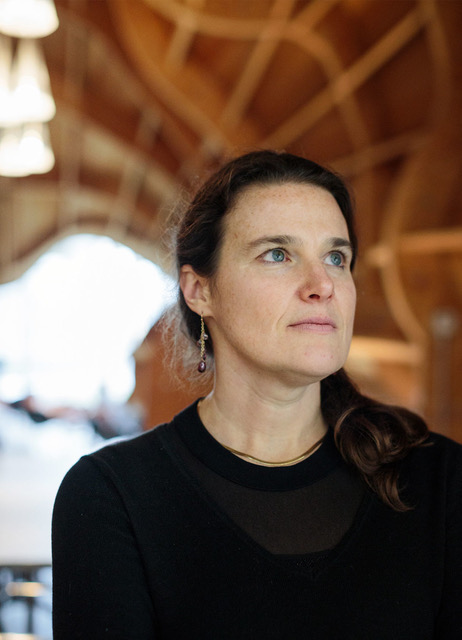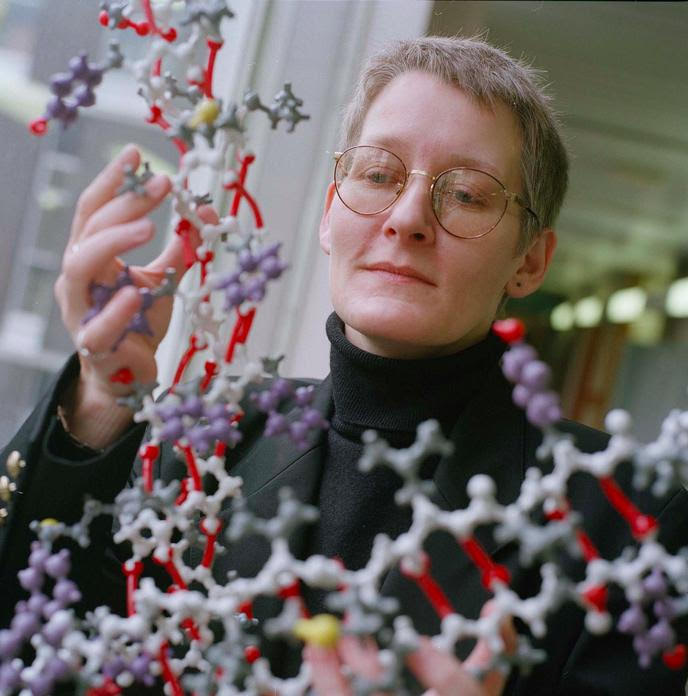 |
ISCB Announces 2021 Award Recipients
Peer Bork, Barbara Engelhardt, Ben Raphael, Teresa Attwood!
|
|
The International Society of Computational Biology (ISCB) is pleased to announce the winners of the 2021 Accomplishments by a Senior Scientist Award, Overton Prize, Innovator Award, and Outstanding Contributions to ISCB Award.
Peer Bork, EMBL Heidelberg, is the winner of the Accomplishments by a Senior Scientist Award. Barbara Engelhardt, Princeton University, is the Overton Prize winner. Ben Raphael, Princeton University, is the winner of the ISCB Innovator Award. Teresa Attwood, Manchester University, has been selected as the winner of the Outstanding Contributions to ISCB Award.
"As chair of the Awards Selection Committee it gives me great pleasure to convey my heart-felt congratulations to this year’s awardees. Our community, as represented by the committee, admires these individuals’ outstanding achievements in research, training, and outreach."
- Martin Vingron, Chair, ISCB Awards Committee |
|
| |
 |
|
Peer Bork, PhD
Director, EMBL Heidelberg (Scientific Activities), Germany
Recipient of ISCB Accomplishments by a Senior Scientist Award
|
| |
|
|
The Accomplishments by a Senior Scientist Award recognizes a member of the computational biology community who is more than two decades post-degree and has made major contributions to the field of computational biology. Peer Bork is being honored as the 2021 recipient of this award.
Peer Bork has been at EMBL since 1991, head of Units since 2001; the current strategic head of Bioinformatics at EMBL Heidelberg since 2011 and an ERC Advanced Investigator. Bork received his PhD in biochemistry in 1990 and his habilitation in theoretical biophysics in 1995.
His group, the Bork group, focus on gaining insights into the functioning of biological systems and their evolution by comparative analysis and integration of complex molecular data. Together with other groups at EMBL, they hope to establish interaction maps between chemical compounds and microbes, individually and in communities using advanced multi-omics approaches, with application for human (e.g. individualized diet) or planetary health (e.g. pesticide response biomarkers).
Peer Bork has made tremendous contributions to bioinformatics on a plethora of fronts within the field. This includes his early work on protein domains (leading to the SMART database), genome analysis of higher eukaryotes (leading to authorships on the human, mouse, and rat genome papers), work on one of the most used methods for analysis of mutation data (PolyPhen), large-scale phylogeny (leading to iToL), inventing several of the method for inferring gene/protein networks (leading to the STRING database), analysis of drugs and adverse reactions (leading to STITCH and SIDER) and most recently pioneering microbiome research.
In addition to the research as evidenced in his impressive list of over 590 publications, he has had immense impact also as a mentor. The majority of his many postdocs over the years have moved on to become successful group leaders themselves. |
|
 |
|
Barbara Engelhardt, PhD
Associate Professor at Princeton University, New Jersey, United States
Recipient of the ISCB Overton Prize
|
| |
|
|
The Overton Prize recognizes the research, education, and service accomplishments of early to mid-career scientists who are emerging leaders in computational biology and bioinformatics. The Overton Prize was instituted in 2001 to honor the untimely loss of G. Christian Overton, a leading bioinformatics researcher and a founding member of the ISCB Board of Directors. Barbara Engelhardt is being recognized as the 2021 recipient of the Overton Prize.
Barbara Engelhardt joined the Princeton Computer Science Department in 2014 from Duke University, where she had been an assistant professor in Biostatistics and Bioinformatics and Statistical Sciences. She graduated from Stanford University and received her Ph.D. from the University of California, Berkeley.
Barbara Engelhardt’s research is in developing statistical models and machine learning methods for the analysis of biomedical data, with a focus on studying complex associations, time-series, sequential decision-making, and predicting the effects of perturbations in human cohorts, single cell data, and hospital patient data. In the field of single cell genomics, dimension reduction is a pressing problem and she has contributed a scalable and robust approach to dimension reduction using a Gaussian process latent variable model (GPLVM) with t-distributed residuals. Her group also developed approaches to determine the specific set of genes that differentiate particular types of cellular pathology images using machine learning methods like convolutional autoencoders and sparse canonical correlation analysis. Her research has a reputation for producing rigorous and creative statistical approaches for the analysis of complex biomedical data.
As part of the Genotype-Tissue Expression (GTEx) Consortium, Dr. Engelhardt performed key analyses to identify regulatory DNA variation that is linked to distal gene expression changes (“trans-eQTLs”). In the context of this large scale experimental effort, she determined trans-eQTLs across 49 human tissues and 838 individuals. Notable results include a confirmation of the greater tissue specificity of trans-eQTL versus mutations that are nearby the gene they regulate. Based on her expertise and creativity she has contributed numerous novel machine learning and statistics methods to important projects from genomics, population genetics, and human genetics.
Barbara Engelhardt has been an outspoken advocate for women and under-represented groups in the sciences. She has used her voice to advocate on behalf of these groups both through traditional means and on social media. Notably, Dr. Engelhardt's research group, housed in a computer science department, currently includes five women graduate students and postdocs and she has served as a mentor, both formally and informally for many women and individuals from under-represented groups, proving Dr. Engelhardt's status as a leader in the field of computational biology and bioinformatics.
|
|
|
 |
|
Ben Raphael, PhD
Professor, Department of Computer Science, Lewis-Sigler Institute, Princeton University, New Jersey, United States
Recipient of ISCB Innovator Award
|
| |
|
|
The year 2016 marked the launch of the ISCB Innovator Award, which is given to a leading scientist who is within two decades of receiving the PhD degree, has consistently made outstanding contributions to the field, and continues to forge new directions. Ben Raphael is the 2021 recipient of the ISCB Innovator Award.
Ben Raphael received an S.B. in Mathematics from MIT, a Ph.D. in Mathematics from the University of California, San Diego (UCSD), and completed postdoctoral training in Bioinformatics and Computer Science at UCSD.
Ben Raphael is a Professor of Computer Science at Princeton University. His research focuses on the design of combinatorial and statistical algorithms for the interpretation of biological data. Recent areas of emphasis include cancer evolution, network/pathway analysis of genetic variants, and structural variation in human and cancer genomes.
His group’s algorithms have been used in multiple projects from The Cancer Genome Atlas (TCGA) and the International Cancer Genome Consortium (ICGC). He co-led the TCGA Pancreatic Adenocarcinoma project and the network analysis in the ICGC Pan-Cancer Analysis of Whole Genomes (PCAWG).
Ben is considered by many to be the leader in algorithmic computational cancer biology. He is the recipient of the Alfred P. Sloan Research Fellowship, the NSF CAREER award, and a Career Award at the Scientific Interface from the Burroughs Wellcome Fund. His papers cover a range of topics in computational cancer biology. These include the problems of separating genomic mixtures of cancer cells according to the mutations present in their genomes; analyzing temporal progression of mutations in cancer; identifying recurrent copy number aberrations; and discovering important sets of mutations across cohorts of cancer patients according to a statistical signal of anti-correlation, or mutual exclusivity, between mutations in the set. Several of Ben’s algorithms -- including his THetA and AncesTree algorithms for analyzing mixtures of cancer cells, his Dendrix and Multi-Dendrix algorithms for analyzing mutually exclusive mutations, and his HotNet algorithm (RECOMB 2010, Nature Genetics 2015) for network analysis of cancer mutations -- have become standards by which other research groups benchmark their algorithms. Ben’s computational approach to discover important cancer mutations using mutual exclusivity has inspired many other groups to work on this problem. |
|
|
 |
|
Teresa Attwood, PhD,
Professor emerita, School of Computer Science, The University of Manchester
Recipient of the ISCB Outstanding Contributions Award
|
|
| |
The Outstanding Contributions to ISCB Award recognizes an ISCB member for outstanding service contributions toward the betterment of ISCB through exemplary leadership, education, and service. The 2021 recipient of the Outstanding Contributions to ISCB Award is Teresa Attwood.
Attwood completed her PhD in Biophysics in just two years at the University of Leeds. She was subsequently awarded a prestigious Royal Society University Research Fellowship, which she held from 1993-2002. During the decade from 1996, she was also a visiting fellow at the European Bioinformatics Institute (EMBL-EBI). She gained a Chair in Bioinformatics in 2001, and is now Professor emerita of Bioinformatics in the School of Computer Science at The University of Manchester.
A visionary within the field, she saw early on the power of bioinformatics education. She co-authored (with David Parry-Smith) the first book in bioinformatics, which became a reference in Universities worldwide, and was translated into many different languages; she went on to co-author two further books: the first with Paul Higgs, the second with Steve Pettifer and Dave Thorne. Teresa was quick to recognize that ISCB was a key global player strongly promoting bioinformatics education.
Attwood has been a champion of the bioinformatics education community, where she has been instrumental in putting in place ISCB platforms that allow the education community to highlight their work and that raise the awareness of ISCB as a leader in bioinformatics education globally.
A longstanding and involved ISCB member, Attwood continued to further bioinformatics education on behalf of the global bioinformatics community and ISCB through many years of service. In 2001, she joined Phil Bourne’s ISCB Education Working Group to define the topic areas in a complete bioinformatics curriculum and identify the available learning resources. This group was the precursor of the creation of the ISCB Education Committee (2002).
Attwood was instrumental in launching the Global Organization for Bioinformatics Learning, Education and Training (GOBLET, 2012) as a network of global training organizations and individuals, and was its Chair for the first 7 years. Understanding the need to link GOBLET with ISCB, Terri worked with Fran Lewitter on the ISCB Education Committee Leadership Task Force (Summer 2016) to align the missions of GOBLET with those of ISCB and the emerging Education COSI, thereby ensuring the two organizations work in harmony towards their respective goals.
Teresa Attwood is being recognized for her many years of significant contributions to both ISCB and the broad bioinformatics and bio-curation communities, including as creator of the PRINTS protein fingerprint database, and co-founder of the InterPro protein family database with Amos Bairoch, Rolf Apweiler and Richard Durbin.
|
|
ISCB will present the Accomplishments by a Senior Scientist Award, Overton Prize, Innovator Award and Outstanding Contributions to ISCB Award, at ISMB/ECCB 2021 (https://www.iscb.org/ismbeccb2021), which will take place in virtually, July 26-30, 2021.
Full bibliographical articles profiling the award recipients will be available in the ISMB/ECCB 2021 focus issue of the ISCB newsletter later this year, as well as the ISCB Society Pages in OUP Bioinformatics, and F1000 Research ISCB Community Journal. |
|
|
|











